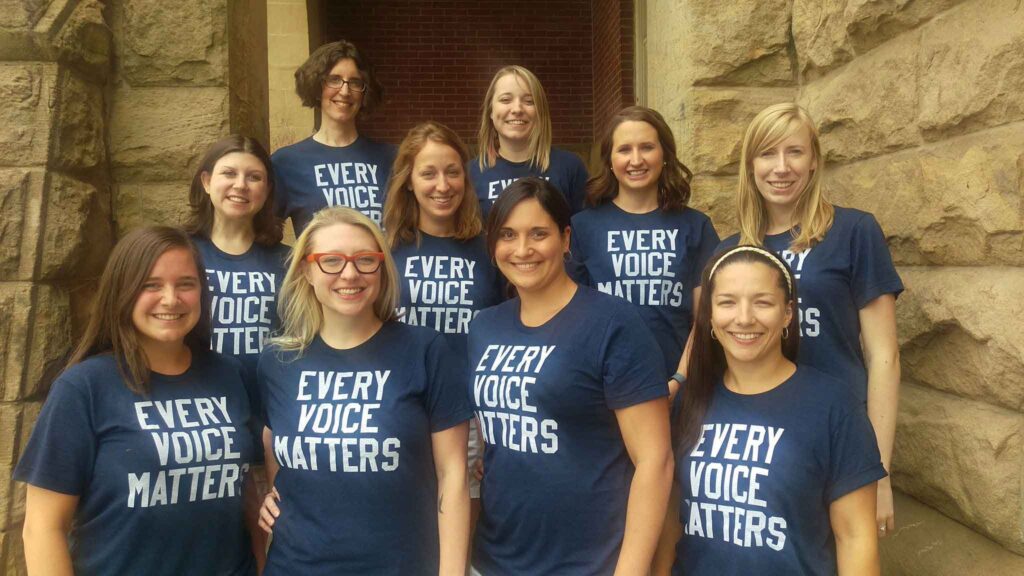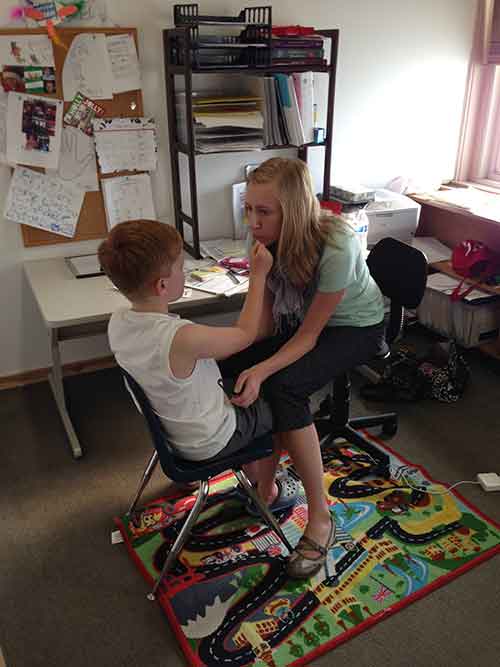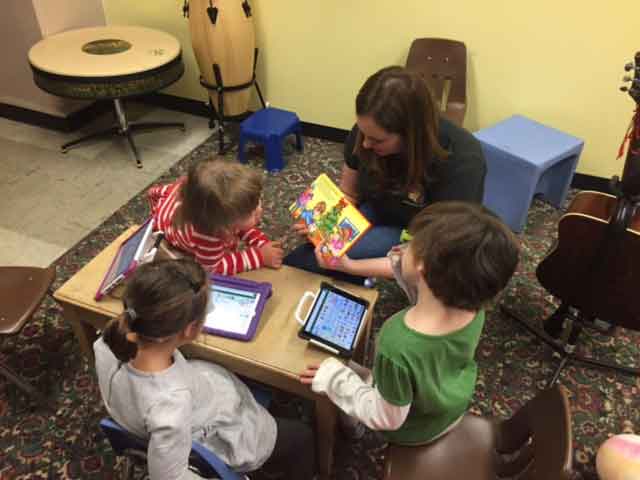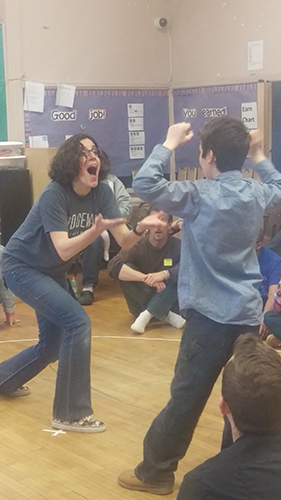May is Better Speech and Hearing Month!
May 13, 2016
Bridgeway Academy’s therapy department includes a team of twelve speech-language pathologists – SLPs – who strive to meet the therapeutic needs of the students and clients who attend or visit Bridgeway Academy each day, in many ways outside of traditional, individual speech therapy. At Bridgeway Academy, speech therapy extends far beyond working on speech sounds and answering “WH” questions. Though these skills are commonly addressed in speech therapy at Bridgeway Academy and elsewhere, the roles and responsibilities of a speech-language pathologist include a variety of other areas related to speech and language.
The American Speech and Hearing Association (ASHA), the governing body of the field of speech-language pathology, defines a Speech-Language Pathologist as, “… the professional who engages in professional practice in the areas of communication and swallowing across the life span. Communication and swallowing are broad terms encompassing many facets of function. Communication includes speech production and fluency, language, cognition, voice, resonance, and hearing. Swallowing includes all aspects of swallowing, including related feeding behaviors.”

The team at Bridgeway Academy provides speech-language therapy services in individual therapy, small groups and whole class activities. They work with students on a variety of skills ranging from articulation and language comprehension, to AAC (alternative and augmentative communication) use, social language skills, and even food acceptance. Here are just a few of the unique ways that Bridgeway Academy’s speech department strives to provide the most effective and practical therapy for its students and therapy clients.
Individual Therapy Sessions

The SLPs at Bridgeway Academy spend much of their days in individual speech sessions in the speech room. The SLPs have a lot of creative ideas for making speech fun, motivating, and rewarding! Individual speech therapy sessions allow the therapist and child to focus on building and improving their speech and language skills in the specific areas that the child needs most. Individual sessions can incorporate a variety of techniques to teach a wide range of skills, including articulation and use of PROMPT technique, use of AAC devices – specifically incorporating LAMP Words for Life – for non-verbal students, and developing problem solving skills while incorporating programs like Social Thinking. Individual therapy sessions can also focus on teaching general language skills, through both play and structured academic-style tasks, like answering WH questions, following directions, auditory processing, and developing first words and core vocabulary.
Push-in Sessions
The Bridgeway Academy SLPs also spend time with individual students within the students’ classrooms, and push-in sessions are just as important as pull-out sessions. Push-in sessions allow students to continue to work on developing their speech and language skills in a functional setting, and incorporating those skills, previously targeted in individual therapy, into their daily routines and academic tasks. SLPs can support students with direction following, understanding the vocabulary in an academic activity, supporting students in social and group activities, and encouraging AAC device use within the classroom. Many of the Bridgeway Academy SLPs accompany older students on community outings, assisting them in building their language skills and improving their communication with others outside of a familiar setting.
Speech Parties

Speech Parties are another way to continue to promote speech and language development in the classroom. During speech parties, the SLPs lead whole class activities, most often promoting development of social language skills among the students within the classroom. Speech party activities can target skills ranging from verbal and non-verbal turn-taking, to describing a mystery item to a peer. Speech parties allow students to learn and interact through fun and games, while – sometimes unknowingly – building their language skills and social interactions.
Co-Treats

The Bridgeway Academy therapy department is made up of a large team of Music Therapists, Occupational Therapists, Physical Therapists, Psychologists, and Speech-Language Pathologists. Whether they are encouraging a child to request “more” while swinging during PT, incorporating language concepts into an OT activity, working on speech sounds while singing during music therapy, or working on social and emotional language along with a psychologist, the SLPs at Bridgeway Academy love having the opportunity to co-treat with all of these disciplines to better meet the needs of their students.
Groups
The Bridgeway Academy SLPs provide speech therapy in a variety of group settings throughout the school days. Teaming up with the music therapy department, the speech department participates in a variety of groups to promote development of social skills for students of all ages. The speech and music teams are involved in social groups for school-age students, along with weekly theater groups for older students, and an AAC group for younger students who use communication devices. These groups provide students with the opportunity to develop language and social skills and encourage interactions, with both familiar and new peers, in a setting that is quite different from an individual therapy session.
The speech team takes pride in being a part of such a collaborative organization that values communication of all kinds, and remembers that every voice matters. If you have questions about speech therapy at Bridgeway Academy, or about ways to promote speech and language outside of the speech room, contact the speech department – or your child’s/classroom’s Speech-Language Pathologist. Happy Better Speech and Hearing Month!
« Previous
The Reasons Why